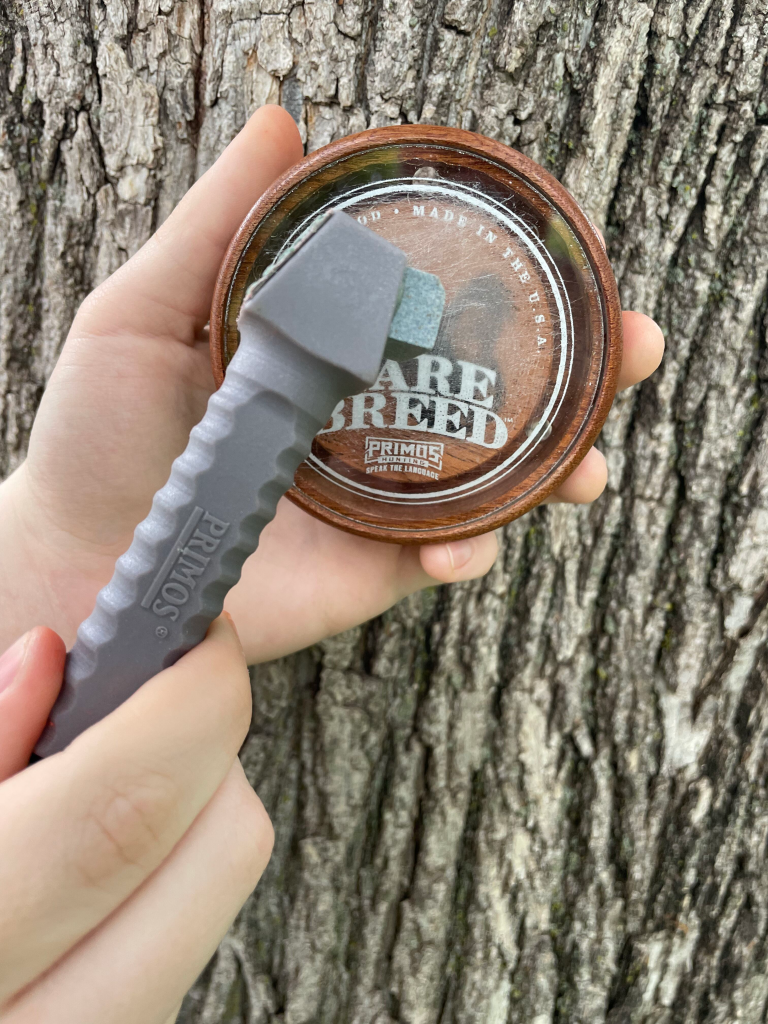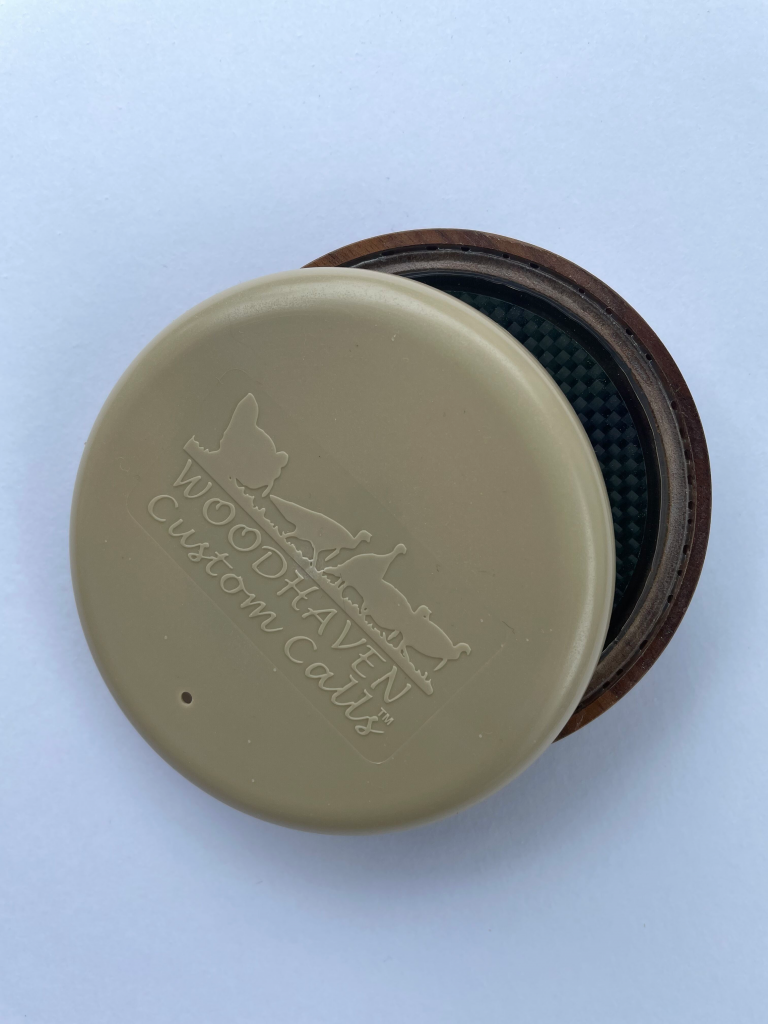Condition and Maintain
Friction calls need special attention and tender-loving care to sound great and stay that way.
Like good fishermen who always ensure hooks are sharp and knots are tight, good turkey hunters must keep their friction calls properly conditioned and maintained. There’s always room for conditioning materials to be tucked inside your turkey vest. You’ll need these small, yet ever-important accessories to keep your calls at their best.

Slate and glass are naturally smooth, so pot calls — especially glass or crystal calls — may not be effective straight out of the package. Sand or rough up the surface before first use and repeat regularly while using the call.
To do so, use a flat kitchen scouring pad (such as a green Scotch-Brite) to rough up calling surfaces made of slate. Use sharp 50-80 grit carbine sandpaper, coarse metal screen, or a rough knife-sharpening stone for glass or crystal. Also, condition the striker by scraping with a dull knife or fine sandpaper (220 grit or finer).
When roughing up a calling surface, use firm pressure. First move in tight circle motions, then slowly go from left to right, so the rough area on the slate runs horizontally. This way, when you pull the striker up and down the call (vertically), the ridges in the striker tip can slide across ridges in the calling surface, creating reliable vibrations and producing good turkey sounds.
Avoid using old, worn sandpaper, which will polish the surface, instead of roughening it. Always use razor-sharp sandpaper and metal screens. Sharp materials do a better job cutting glass. Note: Many callers don’t rough up glass calls enough; these calls need to get coarse and cloudy to sound at their best. Yes, this might ruin your view of the cool soundboard under the glass, but that’s a necessary loss.
Typically, box calls only need some box-call chalk on the underside of the lid and lip(s) of the box sides to keep them in prime condition. This is because the chalk can get wiped off when carried in a turkey vest. Yet, occasionally, run a few strokes of fine (120 grit or so) sandpaper along the length of the lid and sides before applying the box-call chalk. This will help the chalk stick and give the box call a fresh sound.
Dust, dirt, grime and moisture interfere with creating friction, which makes calling difficult. Keep box calls, slate calls and strikers clean and dry. Don’t forget to wipe them down with a clean cloth or paper towel after every hunt.
To help hunters gather and keep friction call maintenance materials at the ready, many turkey call manufacturers offer call conditioning kits or tools. Primos and Woodhaven are excellent examples.

The Primos Slick Stick features a green conditioning pad and a stone to touch up any calling surface. It also has a place to store box-call chalk and a built-in chamber that quickly cleans and conditions the tip of a striker. The Primos Box Call Chalk 3-Pack accessory includes pieces of wax-free chalk in a plastic carrying case.
Woodhaven offers a conditioning stone with a convenient, easy-to-control wooden handle, and a conditioning kit with three sanding pads and one finishing pad in a carrying case. A package of Real Hen Premium Box Call Chalk is available too.
Pay attention to the little things like conditioning and maintaining your calls while in the turkey woods. This extra effort could certainly reward you with a higher success rate.
CONNECT WITH US
National Wild Turkey Federation
770 Augusta Road, Edgefield, SC 29824
(800) 843-6983
National Wild Turkey Federation. All rights reserved.
